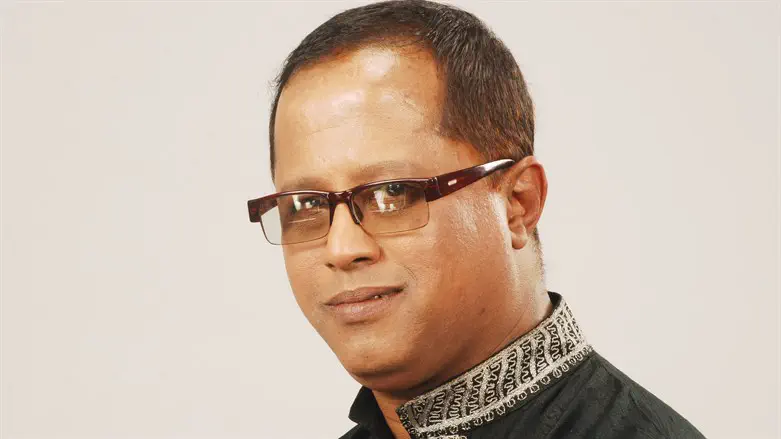
Salah Uddin Shoaib Choudhuryis an internationally acclaimed multi-award-winning anti-militancy journalist, writer, research-scholar, and editor of Blitz, a newspaper publishing from Bangladesh since 2003. Follow him on X @Salah_Shoaib.
(JNS) In the early hours of Oct. 7, the world witnessed an unprecedented act of terrorism that has left analysts and policymakers grappling with its implications. The Palestinian terror group Hamas orchestrated a meticulously planned attack that has sent shockwaves around the world. The audacity of the act was not just in its execution but also in its aftermath: Hamas took to social media platforms to broadcast their heinous crimes in real time, a tactic eerily reminiscent of ISIS.
The attack was not merely a military operation aimed at causing destruction. It was a psychological warfare strategy designed to instill fear and chaos among the Israeli populace. The terrorists went beyond the pale, engaging in acts of sexual violence and kidnapping, mirroring the barbaric actions of ISIS. The message was clear: Hamas is willing to stoop to any low to achieve its nefarious objectives.
The scale of the attack has led some experts to draw parallels to the September 11, 2001 attacks on the United States. However, when one considers the demographic differences between the two nations, the Oct. 7 attack appears far more devastating. Israel, with a population of just over nine million, has suffered over 900 deaths and counting. To put this in perspective, the equivalent in the U.S., with its population of 331 million, would be nearly 30,000 deaths. The number of wounded in Israel has reached 2,000, which translates to over 75,000 in American terms.
For years, a handful of individuals have been sounding the alarm about the rising tide of anti-Israel and anti-Zionist sentiment. Its propaganda has been disseminated through various channels, including academic institutions, human rights organizations and even international bodies like the United Nations. The result has been a cognitive tsunami that has engulfed the world in a cloud of falsehoods and distortions.
The rise of anti-Zionism as the new form of antisemitism has been facilitated by an unholy alliance between Islamist extremists and Western elites. This coalition has been particularly potent in Muslim-majority countries, where criticism of Israel is often conflated with religious piety.
In Bangladesh, for example, individuals who dare to speak out against this narrative are branded as traitors and subjected to severe penalties, including imprisonment.
Over the course of more than two decades, I have consistently asserted that anti-Zionism had evolved into a modern manifestation of antisemitism. I also emphasized that the alliance formed between Islamists—whose animosity towards Jews, Judaism and the Jewish state was rooted in religious motives rather than territorial disputes—and Western politically correct elites, constituted an exceptionally perilous partnership.
Regrettably, my steadfast stance led to accusations of treason within my homeland, Bangladesh, the world’s third-largest Muslim nation, as well as condemnation from other Muslim nations. I was even falsely labeled a “Zionist spy,” resulting in a seven-year prison sentence, during which I was confined to a condemned cell.
Throughout this ordeal, the Muslim media ridiculed me, while the non-Muslim press, including Western and Jewish outlets, remained largely silent, failing to voice any support on my behalf. I turned to Arutz Sheva after I was released and they alone not only posted my story, they agreed to interviews in my newspaper The Blitz.
In the wake of the Hamas assault, there have been demonstrations and statements both in support of and against Hamas. While some countries, including members of the European Union, have suspended funding to the Palestinian Arabs, others have continued to propagate the narrative that Israel is the aggressor. It is worth noting that Israel has always extended the hand of compassion, even to its enemies. The daughter of Ismail Haniya, the head of Hamas, received medical treatment in an Israeli hospital, free of charge.
As Israel prepares for a significant counterattack, the world watches with bated breath. The actions taken in the coming days will not only determine the future of Israel but could also set a precedent for how democracies respond to acts of terrorism.